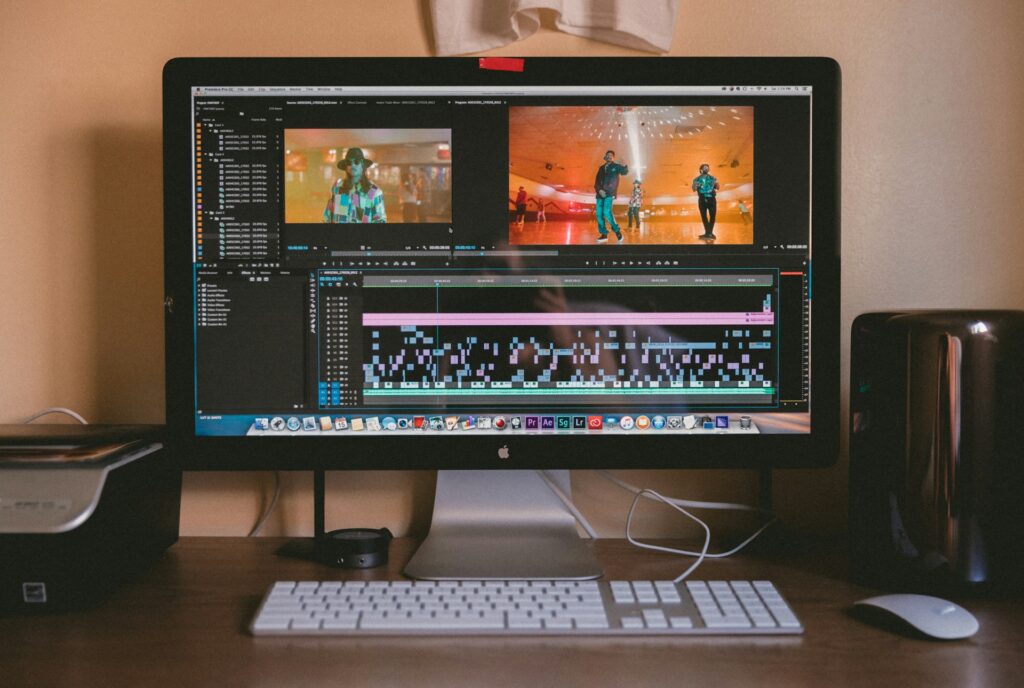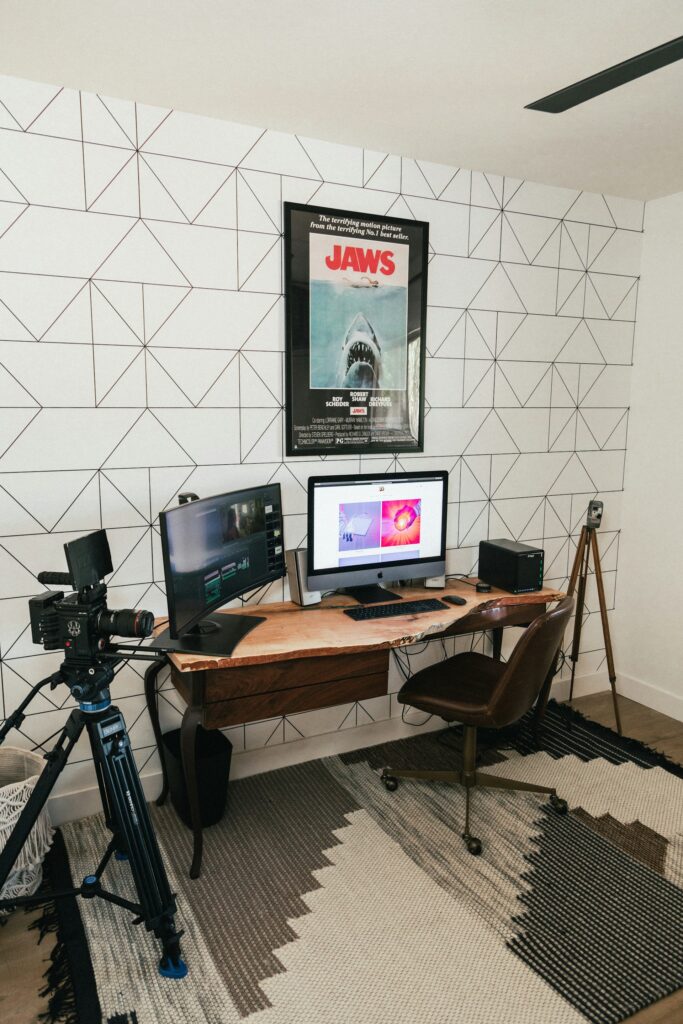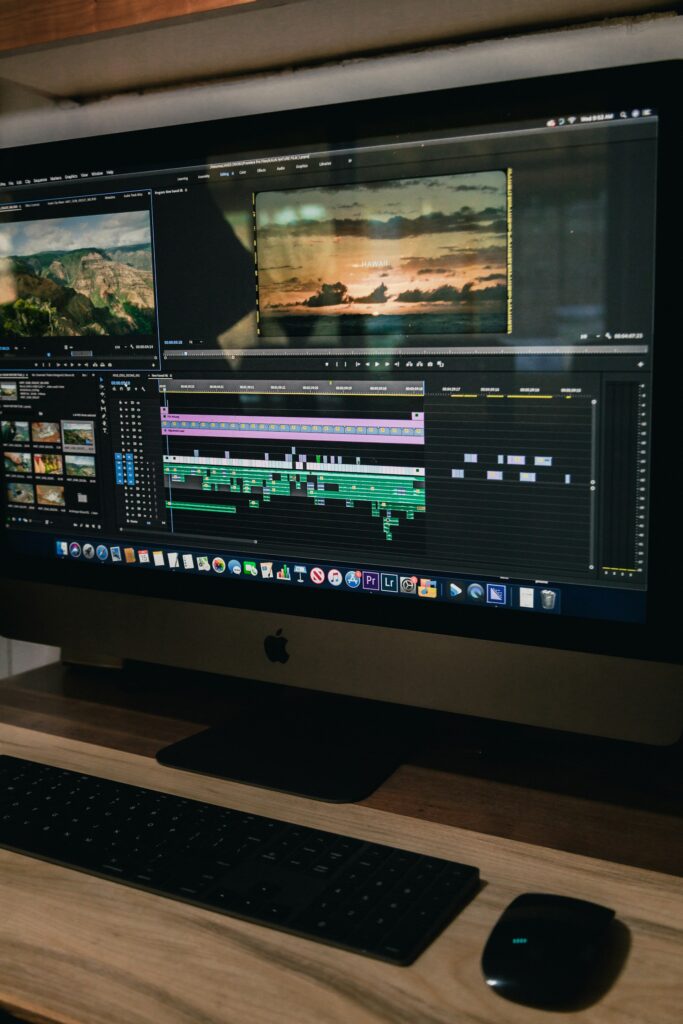Are you interested in a career in digital media? It could represent a smart move; more than 50% of total revenues of the global media market (worth a whopping US$1,706.00bn in total) is anticipated to be generated through digital media by 2029. Via some admittedly shaky maths, it’s fair to predict that digital media as a whole could well be worth over a trillion by the time we enter a new decade.
A major part of this industry involves the creation, editing, marketing and distribution of video media, with video editing an increasingly popular role within the field. Whilst a demanding, skilled job, it’s also one that’s hugely rewarding and varied. If you’re keen to pursue a career in video editing, then you’ve come to the right place; here are the basics explained.
What Are The Roles & Responsibilities Of A Video Editor?
A video editor is a skilled, trained professional who operates within the world of digital media and filmmaking. They are are generally responsible for compiling and collating recorded film into an impressive final piece.
Types of project that a video editor will work on include TV programmes and adverts, music videos, vlogs, films, corporate training videos, and informational shorts for business and government. Their main responsibilities include:
- Making use of video editing software to design and produce projects
- Working with producers and directors on deciding how to take the best shots and tell a compelling story
- Arranging and assembling graphics, video clips, and soundtracks
- Utilising and engineer video footage to enhance colour and clarity
- Storing unused clips for future use
- Curating, directing, editing and placing explainer videos on various websites
What Are The Qualifications Required To Become A Video Editor?
Though no qualifications are strictly necessary to become a video editor, some certification is certainly useful…
An Education In Film Making
Even though many professional video editors are self-taught and no formal qualifications are necessarily required, getting a bachelor’s degree in a film-making discipline can improve the career prospects of a video editor. Education in the film-making discipline ensures that you have the skills required moving forward.
Common bachelor’s degrees include Communication and Media Studies, Fine Art or Visual Art, Film Studies, Graphic Design, Information Technology, and Photography.
A postgraduate degree in Media Production is another common element of education that video editors have on their CVs.



Advanced Skills Of Professional Software
Working in the industry requires that video editors have a deep understanding of the professional software used in the industry. Software it’s essential to familiarise yourself with, implicitly and thoroughly, includes Final Cut Pro, Avid Media Composer, Adobe Premiere Pro CC, Lightworks, and Blender.
Of course, each project and director will have a preference for a certain type of software, so having a diverse knowledge of the different video editing tools available will stand you in good stead.
Even once you’ve established yourself within the industry, it’s essential that you keep learning, engaging in professional development regularly. The company ScreenSkills provides mentoring, advice and a list of approved training providers for those looking to expand their skill set in all things related to The Screen.
Experience
Experience is also essential in addition to knowledge and skills. Experience shows that you are familiar with the industry, the professional environment, and the common roles you must fulfil.
Participating in work experience in a wide variety of media production roles is the best way to develop an implicit understanding of the industry; be warned that this will often be on an internship basis and, therefore, unpaid.
There are many different areas where you can complete an internship, such as marketing, film, commercials, broadcasting, digital media production, and more. Getting an internship as a video editor allows you to show your skills, gain experience, build a better portfolio, and connect with peers and fellow professionals.
There’s also much to be said for engaging in travel as part of your formative learning experience, making your own travel videos and editing them. This spirit of exploration and stepping out of your comfort zone is much valued in the industry.
Memberships Of Organisations
Being a member of professional organisations can help you network, meet new people and make those all important contacts within the industry. As a first step, you should join the Broadcasting, Entertainment, Communications and Theatre Union (commonly shortened to BECTU).
You should also check out the International Alliance of Theatrical Stage Employees (the IATSE), a global union behind entertainment, of which BECTU is a member, as well as the Motion Pictures Editors Guild in the USA, if you have ambitions to get involved in video editing across the pond.

How To Enter The Video Editing Industry?
As Pictures For the People, a branded video content agency in London, tell us, the video editing industry is notoriously competitive, and without internships and work experience under your belt, it’s unlikely you’ll even be considered for a paid role. It’s important to be humble in those early stages and you may well have to begin in an assistant’s role or even as a runner.
Contact a wide variety of local and international production and post-production companies in order to get your name out there and land a role. To help identify relevant contacts use key industry resources, check out The Knowledge, which is a key industry resource and network builder.
You’ll find job listings and vacancies are remarkably scarce online, with contacts and networking often an easier route into the industry. That said, media jobs are listed on Production Base, Mandy.com, 4rfv, and the Freelance Video Collective. The National Careers Service also periodically lists a few currently available video editing roles.
Working (or even interning) as an assistant video editor is another smart move; this will help you learn tips and tricks from experienced video editors and thus polish your skills.

The Bottom Line
Video editing is a driven, focused and rewarding field for creative and ambitious people. To pursue a career in the field of video editing, you will require education, experience, and membership of professional organisations, as well as a deep understanding of the software used in the industry.
Most importantly, however, you’ll need a strong network of contacts and industry insiders, as this is a fiercely competitive industry.
Check out this article on the value of visual storytelling in boosting brand awareness for a closer look at one vital aspect of the industry.





